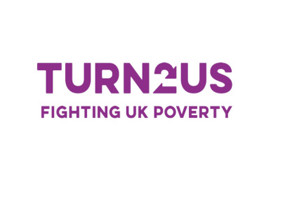Anti-poverty charity Turn2us plans to more than double its voluntary income over the next five years to reduce its reliance on profits from its trading subsidiary.
Turn2us recently published its 2023-2028 strategy, which describes how the charity plans to “grow and diversify our sources of charitable income to give us the funds we need to achieve our vision of financial security for all”.
The charity’s trading subsidiary, Elizabeth Finn Homes, a chain of nine care homes, currently generates almost all of the parent group’s more than £30m annual income, according to its accounts filed with the Charity Commission.
But Turn2us internally counts its charitable income as being much lower, at £6.05m in the year to March 2023 – down from £7.82m in 2021-22 and £10.3m the year before that – with about half coming from surplus and rent generated by its trading subsidiary (£3.2m in 2022-23).
Speaking to Civil Society, Connor Moore, head of philanthropy and partnerships, said the charity aims to more than double its voluntary income over the course of the strategy, from £1.8m in the year to March 2023.
“In order to increase our impact and to diversify our portfolio, we aim to grow voluntary income at Turn2us to in excess of £5m by the end of this strategic period,” he said.
The charity also pledged in its strategy to “improve the returns from our care home business Elizabeth Finn Homes”.
Its strategy says that health and social care workers, such as those employed by its subsidiary, “face many of the challenges that lead people to Turn2us”.
“We will value our Elizabeth Finn Homes care teams, pay them properly and – most importantly – listen to them,” it says.
The charity told Civil Society that it is in the process of selling one of its care homes.
Campaigning pledge
The charity pledged to “campaign to build an economy that includes everyone and that we can all contribute to” in its strategy.
It said it would “develop integrated services people need” through its work “led by people experiencing financial insecurity, the communities we work with and our partners”.
Chief executive Thomas Lawson said: “We’ll continue to offer high quality information, grants and practical support, but focus even more on our power-shifting place-based work and campaign to challenge the systems and perceptions that cause financial insecurity, or allow it to continue.
“The key to ending poverty in the UK is to listen and shift power to people who don’t have enough to live on, and collaborate widely to build a movement for change.”
The charity previously raised £3m in donations in 2020-21 largely through a fundraising appeal in partnership with the Telegraph newspaper aimed at supporting people financially impacted by Covid-19.











